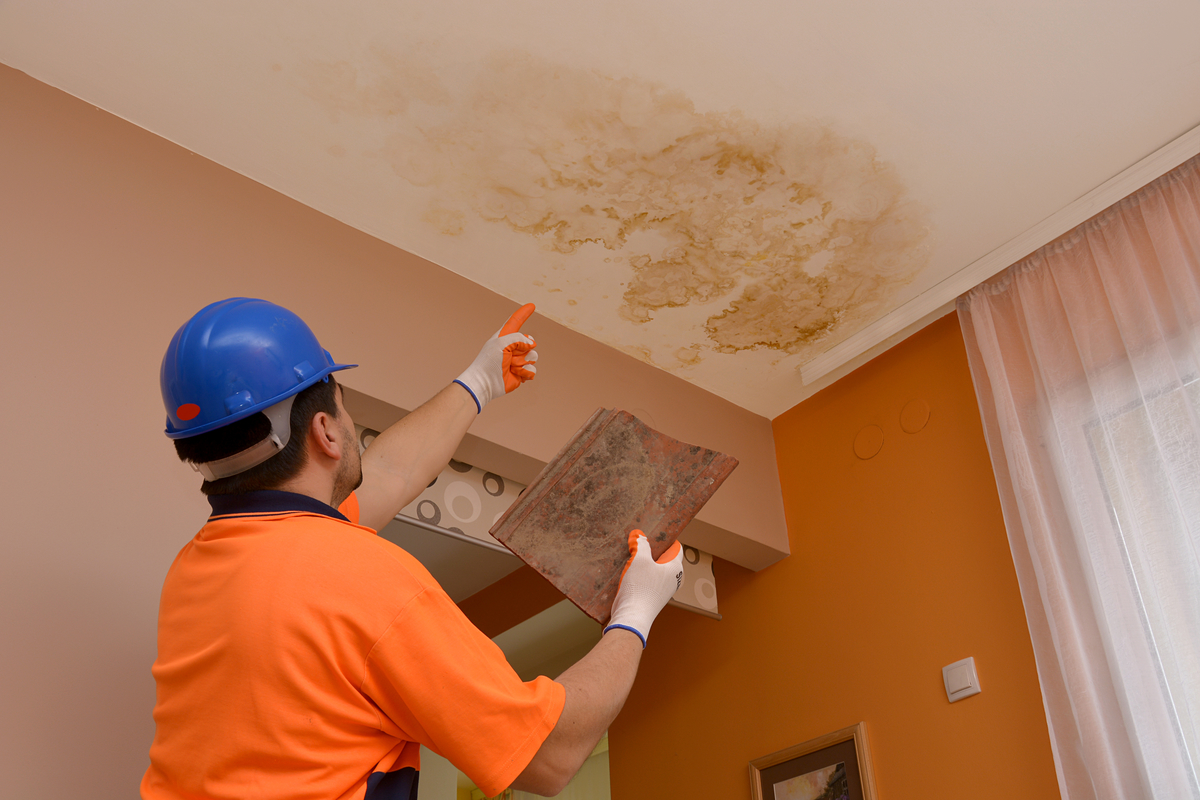Pinpoint Six of Commonest Leak Triggers Within Your House
Pinpoint Six of Commonest Leak Triggers Within Your House
Blog Article
Have you been trying to locate ideas about Top Causes of Home Water Leaks?

Leaks not only create waste of water but can additionally trigger unneeded damage to your house and also promote unwanted natural growth. Unfortunately, water leakages might go undetected because a lot of the pipework in our house is concealed. By understanding as well as looking for daily situations that cause leaks, you can safeguard your residence from future leakages and also unnecessary damage. Today, we will certainly check out six leakage triggers that might be triggering your pipelines to trickle.
Intruding roots
Many water leaks start outside the house rather than inside it. If you see an abrupt decline in water pressure, claim in your tap, take some time to head out and examine your lawn. You could discover damp spots or sinkholes in your yard, which might suggest that tree roots are getting into water lines triggering water to permeate out. You can have your plumber look for intrusion, particularly if you have trees or bushes near your residential or commercial property.
Rusty water systems
As time goes by, your plumbing system ages and rust such as corrosion may start eating away the pipes. This may be the source of discoloration or warping on your pipes. This asks for an examination with your plumber promptly. If our plumbing system is old, think about changing the pipes since they are at a higher danger of rust than the more recent designs.
Faulty Pipeline Joints
Pipe joints can degrade over time, resulting in water leaks. If you have noisy pipes that make ticking or banging sounds, particularly when the hot water is turned on, your pipe joints are possibly under a lot of pressure.
Immediate temperature adjustments.
Severe temperature level adjustments in our pipelines can trigger them to broaden and acquire all of a sudden. This development and tightening might create fractures in the pipelines, particularly if the temperature are below cold.
Poor Water Connectors
At times, a leakage can be triggered by loosened hose pipes and pipelines that provide your devices. In case of a water connections leakage, you may notice water running straight from the supply line or puddles around your appliances.
Obstructed Drains
Clogged drains could be frustrating as well as inconveniencing, yet they can sometimes end up triggering an overflow leading to burst pipes. Keep eliminating any kind of products that might drop your drains pipes that might block them to stay clear of such aggravations.
All the above are reasons for leakages however not all water leakages arise from plumbing leakages; some leaks may come from roofing leaks. All leaks must be fixed quickly to prevent water damage.
Leaks not only cause waste of water yet can additionally create unneeded damage to your home and advertise undesirable natural development. By looking as well as understanding for day-to-day scenarios that cause leaks, you can protect your house from future leaks as well as unnecessary damages. Today, we will look at 6 leakage creates that may be causing your pipes to leak.
At times, a leak can be caused by loose hose pipes as well as pipes that supply your devices. In instance of a water connections leakage, you may discover water running straight from the supply line or pools around your devices.
How To Check For Water Leak In Your Home
How To Check for Leaks
The average household's leaks can account for nearly 10,000 gallons of water wasted every year and ten percent of homes have leaks that waste 90 gallons or more per day. Common types of leaks found in the home are worn toilet flappers, dripping faucets, and other leaking valves. These types of leaks are often easy to fix, requiring only a few tools and hardware that can pay for themselves in water savings. Fixing easily corrected household water leaks can save homeowners about 10 percent on their water bills.
To check for leaks in your home, you first need to determine whether you're wasting water and then identify the source of the leak. Here are some tips for finding leaks:
Take a look at your water usage during a colder month, such as January or February. If a family of four exceeds 12,000 gallons per month, there are serious leaks.
Check your water meter before and after a two-hour period when no water is being used. If the meter changes at all, you probably have a leak.
Identify toilet leaks by placing a drop of food coloring in the toilet tank. If any color shows up in the bowl after 10 minutes, you have a leak. (Be sure to flush immediately after the experiment to avoid staining the tank.)
Examine faucet gaskets and pipe fittings for any water on the outside of the pipe to check for surface leaks.
Undetected water leaks can happen without the home or business owner even realizing. If you suspect a water leak, but not able to find the source. It is time to contact a professional water leak detection service, The Leak Doctor.
How To Find a Water Leak In Your Home
https://www.leakdoctor.com/blog/How-To-Check-For-Water-Leak-In-Your-Home_AE197.html

We had been shown that report on How Fast Water Damage Can Ruin Your Home from an acquaintance on another web blog. In case you liked our post if you please do not forget to pass it around. Thank you for taking the time to read it.
Got trouble? Ring! Report this page